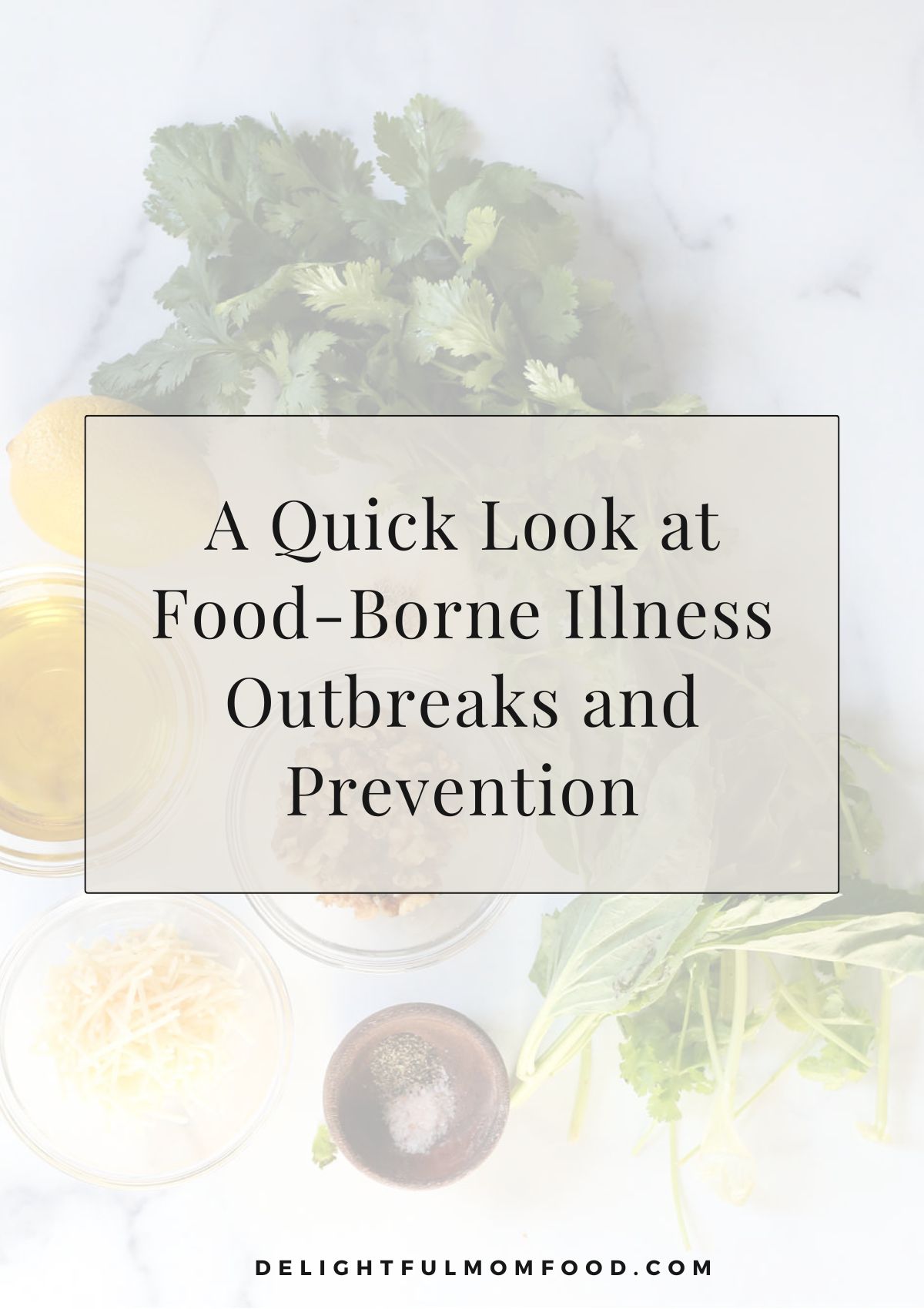A quick look at food-borne illness outbreaks in the past and ways to prevent them now.

Folks today live in far cleaner environments than in the past where food borne illness outbreaks were common territory. Sanitation, medical treatment, and many other things have improved by leaps and bounds. That said, there are still many serious risks in modern society, including the risk of food-borne illness outbreaks.
State governments, like the Wisconsin Department of Health Services, federal organizations, like the Centers for Disease Control, and international organizations, like the World Health Organization (WHO) all work to prevent and contain food-related illness outbreaks.
While these organizations have done a tremendous job of increasing safety and reducing risks, food poisoning remains a fact of modern life. It's smart to keep an eye out for signs of illness. You can do things to prevent food born illness like heat treating flour before using it in raw food recipes, sanitizing the kitchen and cooking space, washing fruits and vegetables, and cooking meats all the way through to a safe temperature.
If you or a loved one do fall sick, you should talk with a medical professional. After that, it's smart to chat with a personal injury lawyer.
A Quick Look at Some of the Biggest Food-Borne Illness Outbreaks
There have been several significant cases of food poisoning throughout history that have had far-reaching effects on public health and safety. Each outbreak has been a tragedy. There is a bit of silver lining, however. In the face of widespread illnesses, doctors and public health officials have stepped up their efforts to combat food poisoning outbreaks.
1919-1920 Botulism Outbreak
This outbreak was one of the largest recorded in American history, affecting countless people and resulting in at least 18 deaths. The cause was contaminated canned foods. While commonly used in cosmetics, botulism is actually one of the deadliest toxins on earth.
The 2011 Germany E. coli Outbreak
This outbreak was caused by contaminated sprouts and resulted in thousands of cases of illness and more than 50 deaths. It’s believed that the primary cause was contaminated organic fenugreek sprouts.
The 2008 Chinese Milk Scandal
This scandal involved the adulteration of milk and infant formula with the chemical melamine, which resulted in over 50,000 infants being hospitalized and several deaths. While food poisoning is often caused by microbes, this serious event is a harsh reminder that other dangers abound as well. Several people received the death penalty or life sentences over the outbreak.
The 1993 Jack in the Box E. coli Outbreak
This outbreak was caused by undercooked hamburgers and resulted in over 700 cases of illness and at least four deaths. This case was one of the biggest in modern times in the United States.
Is Food Poisoning Still a Risk?
The above outbreaks led to significant changes in food safety regulations and practices, emphasizing the importance of proper food handling, preparation, and storage to prevent contamination and food poisoning. Still, food poisoning outbreaks are still common, even if the scale is typically smaller. In the summer of 2022, for example, a Salmonella outbreak linked to shelled peas broke out at Wisconsin farmers' markets. At least six people fell ill with three requiring hospitalization.
If you believe you’re suffering from food poisoning, you may want to contact a doctor.
Symptoms of food related illness
The symptoms of food poisoning can vary depending on the type of bacteria or virus that caused the illness, as well as the individual's age, health, and immune system. However, some of the most common symptoms of food poisoning include:
- Nausea and vomiting
- Aversion to food and water
- Abdominal cramps and pain
- Diarrhea, which may be watery or bloody
- Fever
- Muscle aches
- Fatigue
- Dehydration
It’s also wise to seek legal advice after suffering from food poisoning. A lawyer may be able to help you receive damages for pain and suffering, medical bills, lost income, and more. You can learn more by visiting websites for lawyers that specialize in food-borne illness outbreaks, like NicoletLaw.com and others.
How to prevent food-borne illness and poisoning
Food safety is so important. Here are a few tips to help prevent food poisoning and food illness from bacteria and viruses in your food.
- Always heat treat flour before using it raw foods and no-bake recipes. Check out how to heat treat flour for details.
- Clean and disinfect the area where you are going to cook right before cooking. You always want to make sure you start with a clean space.
- Keep cutting boards for meats and produce separate. Use plastic or marble cutting boards for meat since they can be cleaned easier than wood ones.
- Wash fruits and vegetables thoroughly with filtered water before eating.
- Cook all meats to a safe temperature. Poultry like chicken and turkey should be an internal temperature of 165 degrees F, fish and shellfish should be 145 degrees F, and steaks, chops and roasts should be 145 degrees F. Always use a meat thermometer to check for doneness.
- Discard food at the expiration date and consume leftovers within a safe timeframe.
The post A Quick Look at Food-Borne Illness Outbreaks and Prevention appeared first on Delightful Mom Food.

